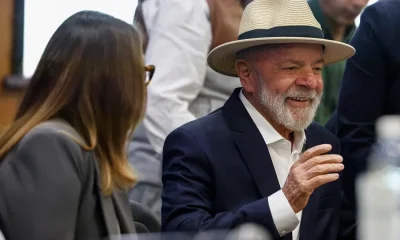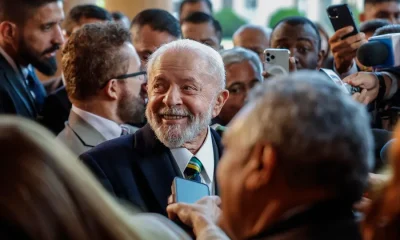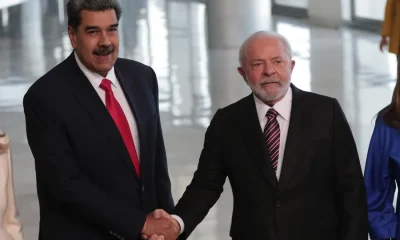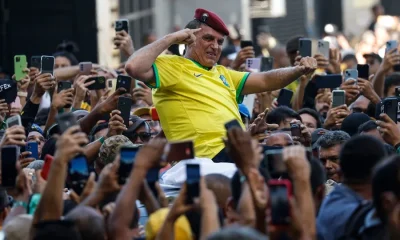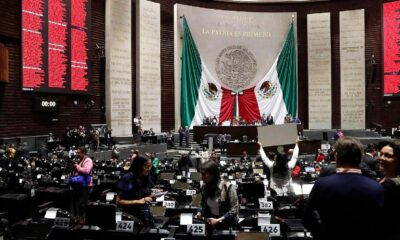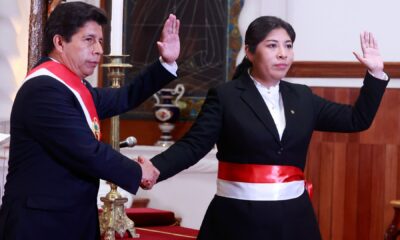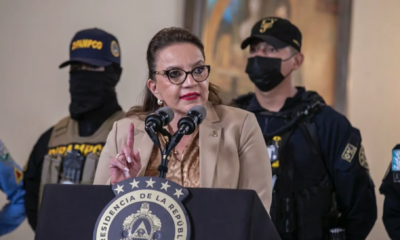International
Lula, back in Brasilia, gets down to politics
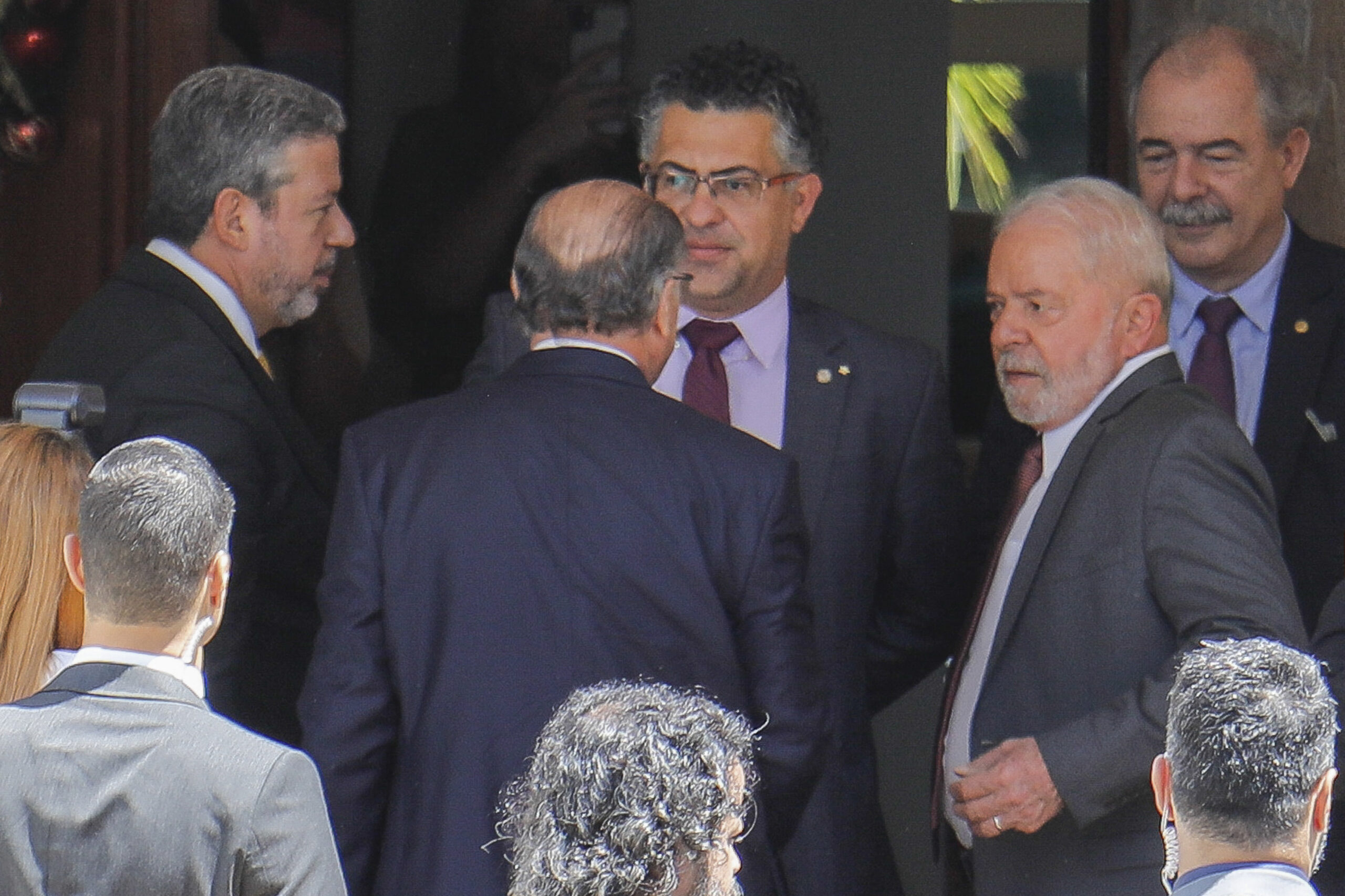
| By AFP |
President-elect Luiz Inacio Lula da Silva met the leaders of both houses of Congress Wednesday, calling for “dialogue” in a divided Brazil as he sought support for his agenda after his inauguration on January 1.
The veteran leftist, who narrowly defeated far-right President Jair Bolsonaro in last month’s elections, is scrambling to secure support for his social spending plans ahead of his swearing-in, but is far short of a majority in Congress.
Making his return to the capital, Brasilia, the former president (2003-2010) kicked things off by meeting the speaker of the lower house, Arthur Lira, previously a Bolsonaro ally.
“The country needs dialogue and normality,” Lula posted on Twitter afterwards, along with a video of he and Lira shaking hands.
He also met Senate president Rodrigo Pacheco.
Brazil was left torn by the October 30 runoff election, which brought a curtain down on four polarizing years under Bolsonaro — who lost by the slimmest margin in the country’s modern history.
Lula, 77, faces the task of healing the nation’s wounds — but also more pragmatic concerns for Latin America’s biggest economy.
That includes finding money for campaign promises such as a minimum-wage increase and continuing a beefed-up welfare program of 600 reais ($115) a month that was introduced by Bolsonaro but not funded in his 2023 budget.
Lula is racing to find the needed funding, with options such as passing a constitutional amendment allowing the government to break its spending cap next year.
That would likely require support from Lira, who is from a loose coalition of parties known as the “Centrao,” a group known for striking alliances with whoever is in power — in exchange for government pork.
Vice President-elect Geraldo Alckmin, who is heading Lula’s transition team, said Tuesday the incoming administration was still evaluating other options, as well.
Lula also had meetings Wednesday with Supreme Court Chief Justice Rosa Weber and Superior Electoral Tribunal head Alexandre de Moraes.
Anticipation is meanwhile running high for his first cabinet appointments, especially from markets anxious over the key post of finance minister.
Alckmin named a four-member economic transition team Tuesday, with two market-friendly economists and two close to Lula’s Workers’ Party (PT).
International
Merengue concert turns to mourning as Jet Set collapse claims 136 lives

Dominican rescue teams will end search and recovery operations on Wednesday, April 9, 2025, at the Jet Set nightclubin Santo Domingo, where the building collapsed during a live concert.
Authorities estimate that the final 20 bodies will be recovered from the rubble today, bringing the official death toll to 136. This includes 12 additional bodies found overnight in the disaster zone, adding to the previously confirmed 124 fatalities.
Outside the collapsed nightclub, desperate relatives of the missing continue to gather, clinging to hope for news. Many also visited nearby hospitals and morgues in search of their loved ones.
A list of confirmed victims has been posted on a tent set up near the site, where the bodies are being transferred for identification.
The tragedy occurred during a performance by renowned merengue singer Rubby Pérez, who was among the deceased.
Central America
Colombia to host fourth EU-CELAC Summit in November
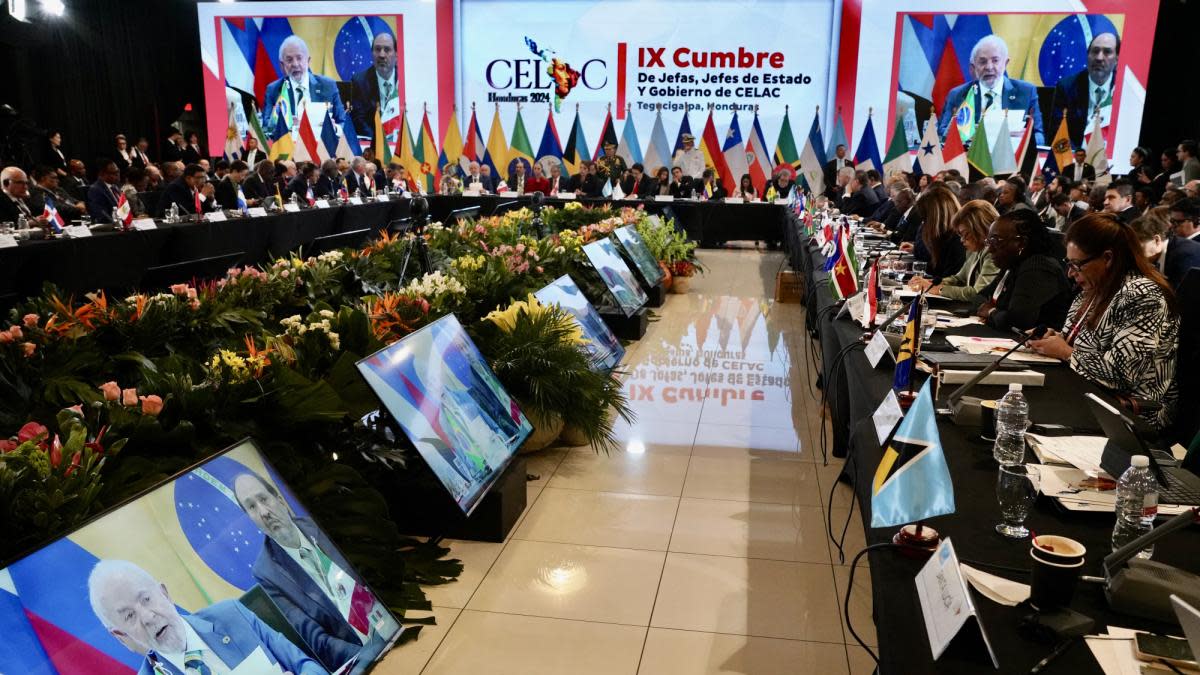
The Fourth Summit between the European Union (EU) and the Community of Latin American and Caribbean States (CELAC) will take place on November 9 and 10 in Santa Marta, Colombia, according to a joint statement released Wednesday by the Colombian government and the European Council.
The summit will be co-chaired by Colombian President Gustavo Petro, in his role as pro tempore president of CELAC, and European Council President António Costa, the statement added.
The last EU-CELAC summit took place in July 2023 in Brussels, when both blocs agreed to hold these meetings every two years.
The summit brings together the 27 EU member states and the 33 CELAC countries, representing 14% of the global population, 21% of global GDP, and one-third of the members of the United Nations, the communiqué noted.
International
Russia and US to Meet in Istanbul for Diplomatic Talks on April 10
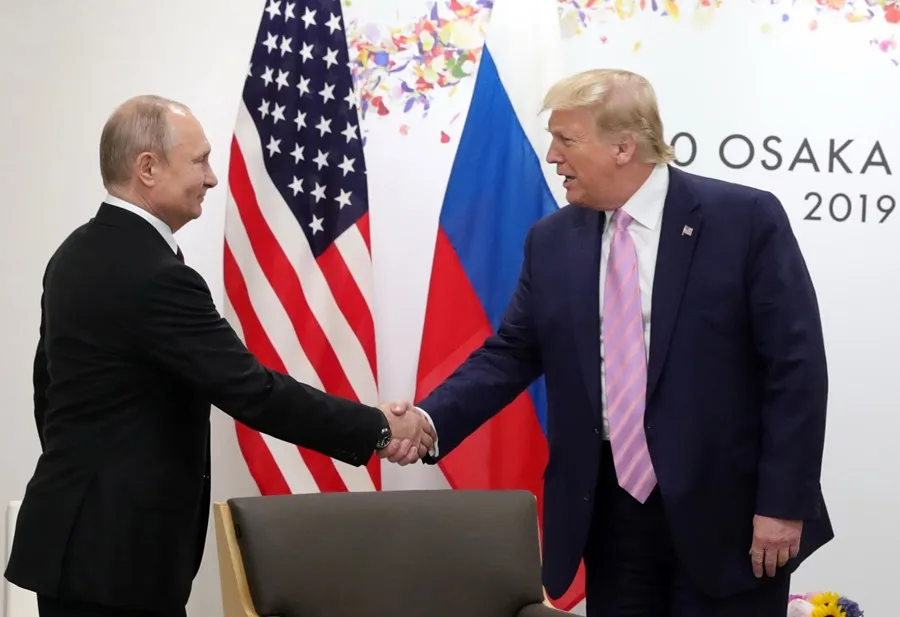
The Kremlin confirmed today a forthcoming meeting with the United States to discuss the normalization of diplomatic relations, which will take place in Istanbul.
“Our participation will be through the Ministry of Foreign Affairs,” said Dmitry Peskov, the presidential spokesperson, during his daily telephone press conference.
Peskov was responding to a question about who would represent Russia in the new round of negotiations, which is supposedly scheduled for April 10.
Subsequently, the Ministry of Foreign Affairs confirmed that the delegations will be led by the Russian ambassador to the U.S., Alexandr Darchiev, and the U.S. Deputy Secretary of State, Sonata Coulter.
These are the same negotiators who met in late February in Istanbul, where the expert-level negotiation format was the same, according to the source.
Russian Foreign Minister Sergei Lavrov had said a few days ago that the next meeting would be held in the Turkish city, though he did not confirm a date.
Lavrov, who participated in only one of these meetings, clarified that the upcoming discussions would address the issues still dividing Moscow and Washington diplomatically, referring to the operations of both countries’ embassies.
The Kremlin asserted that Washington has not yet responded to Russia’s security concerns, preventing a ceasefire declaration on land, sea, and air.
Meanwhile, Trump expressed discontent with Russia’s recent attacks, including one last week that killed 20 people in Krivi Rig, the hometown of Ukrainian President Volodymyr Zelensky.
So far, Russia has rejected a cessation of hostilities and only declared a 30-day ceasefire on March 18 against attacks on energy infrastructure, which was extended by Kyiv a week later.
-

 Internacionales4 days ago
Internacionales4 days agoErik Prince Backs Ecuador’s Daniel Noboa in Fight Against Crime and “Narcoterrorism”
-

 Central America4 days ago
Central America4 days agoGuatemala’s Legal Chief Shot Dead in Parking Lot: Investigation Underway
-

 Central America3 days ago
Central America3 days agoHonduras Hosts CELAC Summit Amid Regional Concern Over U.S. Deportations
-

 International2 days ago
International2 days agoRussia and US to Meet in Istanbul for Diplomatic Talks on April 10
-

 Central America3 days ago
Central America3 days agoMulino and Orsi Highlight Shared Vision After Panama Joins Mercosur as Associate State
-

 International3 days ago
International3 days agoTeachers in Southern Mexico Bring Education to Stranded Migrant Children
-

 Central America2 days ago
Central America2 days agoAudit Exposes Major Breaches in Panama Canal Port Concession, $300 Million Owed to State
-

 Central America3 days ago
Central America3 days agoTrump Administration Asks Supreme Court to Block Return of Deported Salvadoran
-

 International18 hours ago
International18 hours agoMerengue concert turns to mourning as Jet Set collapse claims 136 lives
-
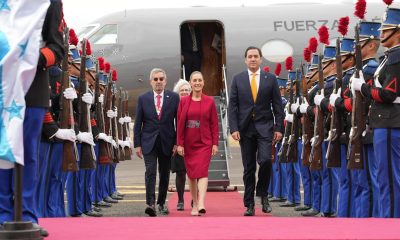
 Central America18 hours ago
Central America18 hours agoMexico’s president proposes regional economic summit at CELAC
-

 Sports2 days ago
Sports2 days agoNeymar Returns to Santos Training After Month-Long Injury Layoff
-
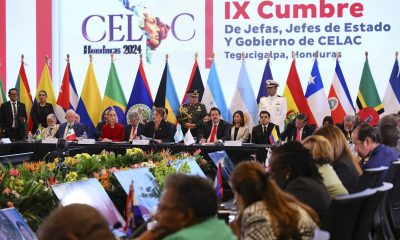
 Central America18 hours ago
Central America18 hours agoCELAC condemns unilateral sanctions in ‘Tegucigalpa Declaration’
-
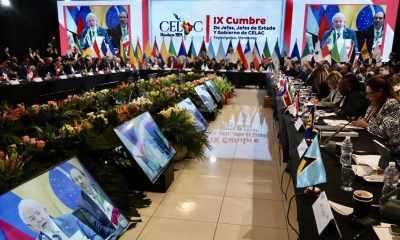
 Central America18 hours ago
Central America18 hours agoColombia to host fourth EU-CELAC Summit in November
-

 International2 days ago
International2 days agoMaduro Announces Economic Emergency Decree Amid Growing Tensions with the U.S.
-

 International2 days ago
International2 days agoScience Brings Back the Extinct Direwolf with Successful De-Extinction Project
-

 International2 days ago
International2 days agoTransgender Student Arrested at Florida Capitol for Using Women’s Restroom Under New State Law


















